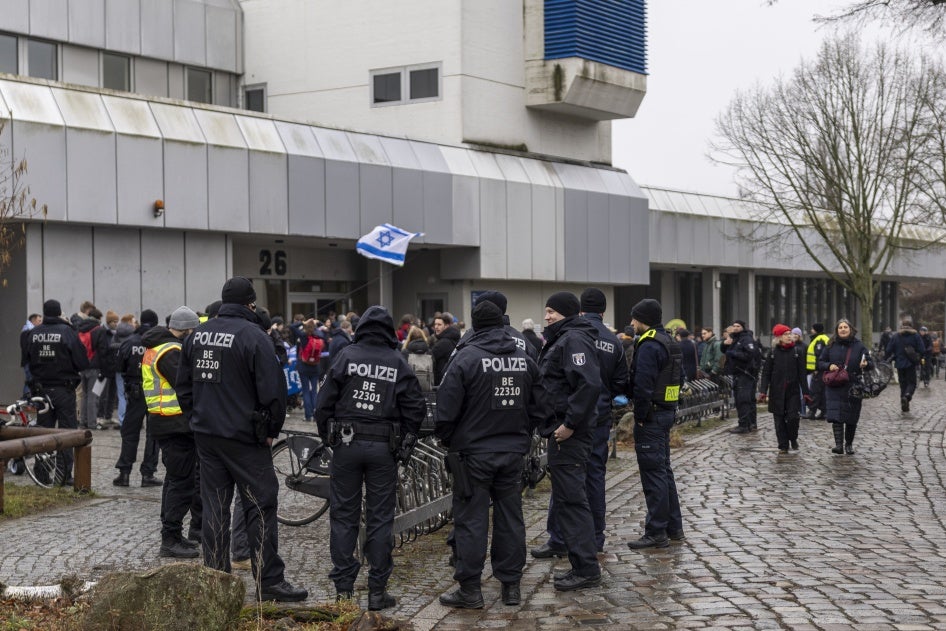In early February, a 30-year-old Jewish student was hospitalized following an attack by a fellow student at Berlin’s largest public university, Freie Universität Berlin.
Berlin’s authorities treated the attack as politically motivated antisemitic violence and attributed it to the impact in Europe of the escalation in the Israel-Palestine conflict. In response to the attack, Germany’s antisemitism commissioner demanded a clear stance against antisemitism from the university leadership.
Berlin has a dedicated general commissioner on antisemitism at the state level as well as within its state police and prosecution office, with the latter two focused on the criminal justice response to antisemitism. They are in regular contact with Jewish communities and groups.
In March, Human Rights Watch met with Winfrid Wenzel, antisemitism commissioner for the Berlin Police Department. His role is to liaise with police officers to ensure effective recognition and recording of antisemitic crimes. He also works to build trust among Jewish communities in the police force.
Wenzel shared information showing that in 2023, police recorded 72 acts of antisemitic violence in Berlin. The frequency of antisemitic violence suggests policing can’t be the sole answer to hate crimes.
International guidelines have demonstrated the critical role education plays in countering the bias and prejudice that underlies antisemitism. The European Commission against Racism and Intolerance highlights the need for educational institutions to be equipped to respond effectively to antisemitic attacks and promote an understanding of antisemitism among students. The German government’s Strategy against Antisemitism and for Jewish Life also highlighted education as a “lifelong goal” to prevent antisemitism.
Last month, Berlin’s state government reacted to the violence, threats, and intimidation faced by Jewish students on campuses with assurances that it was in “intense communication” with universities to guarantee the safety of Jewish students. As of April 1, when the new semester began, universities in Berlin have been asked to strengthen their security protocols relating to antisemitic incidents to ensure students are better supported.
Freie Universität Berlin decided to ban the alleged perpetrator of the attack from campus for a preliminary three-month period; but there is broader work that must be done by German universities to build trust among Jewish students and assure them of their safety. In addition to appointing a contact person on antisemitism, universities should actively raise awareness about antisemitism and other forms of discrimination on campus and create inclusive and open platforms for dialogue and mutual learning.










